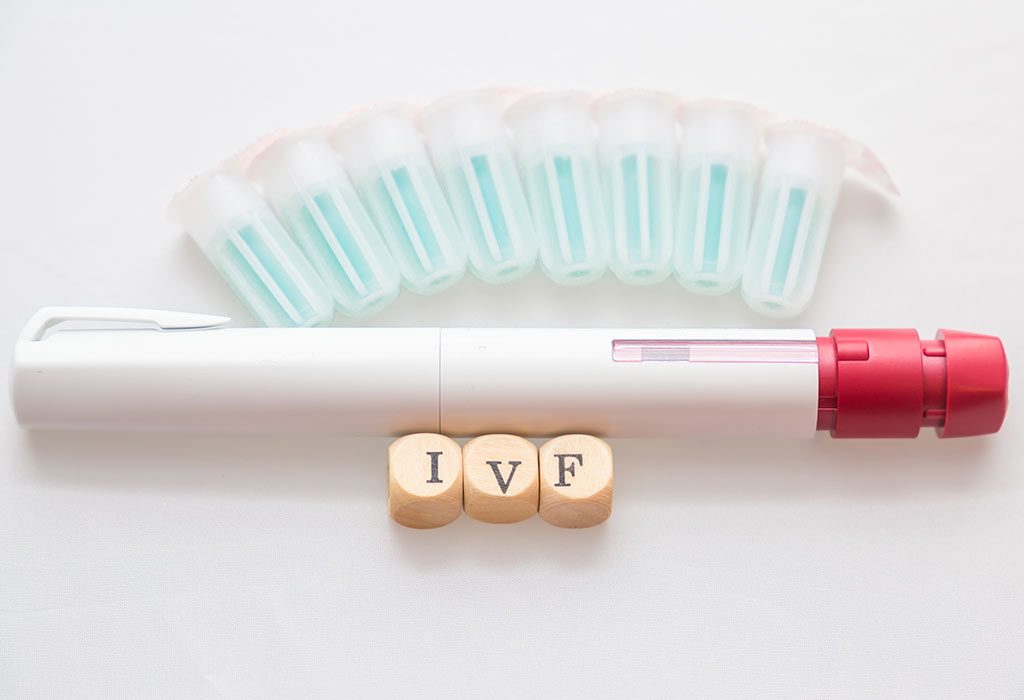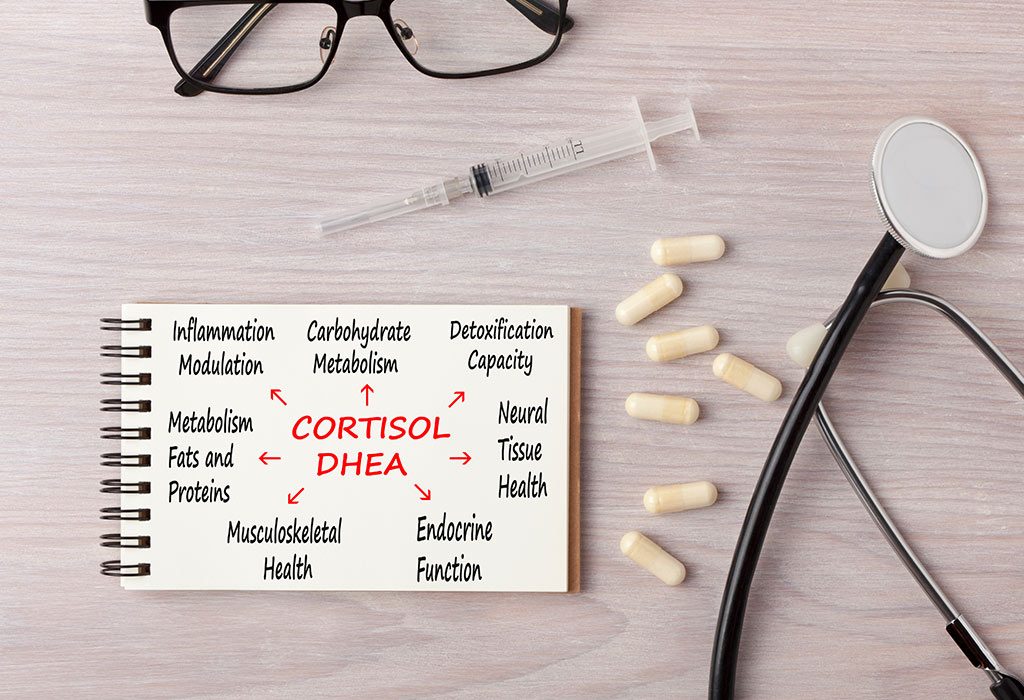In this Article
Many couples tend to believe that there is a strong link between low AMH levels and the natural success rates of pregnancy. But what do the AMH levels truly indicate? The ‘Anti-Mullerian Hormone’ is secreted by the follicles in your body, which are responsible for creating the egg reserves. Understanding the significance of their reduced levels and its impact on fertility can help you get a better picture.
What is Low Anti-Mullerian Hormone?
The Anti-Mullerian Hormone or AMH has a specific standard level based on the age of a woman. As the age increases, the AMH levels start decreasing, depending on the physical and biological constitution of the woman herself. If these levels reach below a certain threshold, it can impact the fertility in the woman substantially.
1. Standard AMH Levels Based on Age
When tracking the AMH levels, the values and their link to the fertility of a woman are usually dependent on the age of the woman. On a general basis, any presence of an AMH level under 1 nanogram per ml is not a good sign, since it usually marks a presence of reduced reserves of eggs. A general value of AMH based on your age is as follows:
| Age (in years) | AMH value (in ng/ml) |
| 25 – 30 | 5.4 |
| 30 – 35 | 3.5 |
| 35 – 40 | 2.3 |
| 40 – 43 | 1.3 |
| 43 and above | 0.7 |
2. How to Detect Low AMH
There are blood tests that are meant for specific purposes, out of which some help in detecting the presence of AMH in your body. These can help you get a precise level of the hormone and detect low AMH if there is any.
3. Causes of Low AMH Levels
The reasons why a woman might experience low AMH levels are not deterministic. The causes of low AMH levels depend on a number of factors and can range from personal individual conditions as well as other aspects beyond our control.
- Unsafe or inappropriate environmental conditions could expose your body to certain substances that may affect the levels of AMH in your body.
- Genetic reasons are a major contributor as well. If your mother or other members of your family suffer from low AMH levels, chances are you might face the same as well.
- The presence of endometriosis, causing the uterine tissue to grow outside instead of within the uterus, has also been termed to be a factor leading to reduced levels of AMH in the body.
- The fertility of a woman reduces substantially as her age increases. While there are various factors that play a role in this, increasing age also brings down the standard levels of AMH in the body.
- Progesterone and estrogen are just a few hormones responsible for maintaining fertility. If there is an imbalance in their levels or in other hormones, they could have an impact on AMH levels, too.
- Despite ruling out numerous factors from age to environment as well as hereditary conditions, there might exist certain aspects that are unknown and have a substantial effect on the AMH levels of your body.
4. What Are the Symptoms of Low AMH?
Unfortunately, there are no typical signs or conditions that can clearly indicate the reduced level of AMH in your body. However, some women have experienced erratic periods or a total absence of them for a few months as a result of low AMH.
Does Low AMH Affect Fertility?
Low AMH does not indicate infertility but is a determiner of reduced reserves of ovaries. Fertilization may still occur successfully in certain cases, but with increasing age, the chances of miscarriage and abnormal embryo development are also higher.
What Are the Chances of Getting Pregnant With Low AMH?
The chances of achieving low AMH pregnancy success are not as dismal as they seem. Women under the age of 35 can still get pregnant with a low AMH level. This may not be true for older women since different factors that affect the fertility come into play as well.
How to Treat Low AMH to Get Pregnant
While there are a few natural ways that might be useful in treating low AMH, such as yoga or even acupuncture, there are two major medical approaches you can take that have shown strong signs in achieving pregnancy even with low AMH levels.
1. Opting for IVF as a Means to Treat Low AMH
IVF has been a popular procedure with various couples when it comes to treating infertility. It all begins by stimulating the ovaries since IVF highly depends on the collection of a substantial number of eggs. Stimulation injections are administered on a daily basis. These play a vital role in causing the ovaries to develop multiple eggs instead of a single one. A larger number of eggs increase the possibility of developing multiple healthy embryos at a later stage. The entire procedure may continue for around 2-3 weeks, where the stimulation frequency and strength is based on each woman’s biological aspects. Ultrasound scans help keep a check on the development of follicles, accompanied by monitoring the levels of serum in the blood.
Once the scans determine that the follicles have reached a good proportion, the procedure for retrieving the eggs is commenced. Since the eggs need to be released from the body, a stimulant is injected that kicks the body into the ovulation stage. It takes a day and a half to reach a stage where eggs can be collected. The entire process takes 15-20 minutes and usually takes place under light sedation to avoid feeling any uncomfortable sensations. Once the eggs are procured, these are fertilized with the sperm of your choosing, either in a petri dish or by injecting them right into the egg. The embryo, once formed, is transferred to the uterus and allowed to implant naturally.

2. Going Ahead with Eggs Procured From a Donor to Achieve Pregnancy
As is clear from the entire process of IVF, the most crucial aspect for it to be successful is by obtaining a good amount of healthy eggs from a woman’s body, after stimulation and ovulation. However, if the levels of AMH are extremely low, the number of eggs might be insufficient or their constitution may not be conducive to be fertilized or form a healthy embryo successfully. In such a scenario, opting for an egg donor is a better alternative.
The difference in the process between IVF and egg donation is quite minimal. Where eggs are obtained from your body in IVF, the eggs here are procured from a donor of your choice or from a clinic that stores frozen eggs for fertility purposes.
These eggs then undergo the same procedure as IVF, following the egg procurement. Your partner’s sperm will be used to fertilize these eggs and form an embryo, which is then transferred to the uterus.
How to Get Pregnant Naturally with Low AMH
While the above mentioned medical procedures do have a strong chance of helping you achieve pregnancy despite having low AMH levels, you can even attempt to get pregnant the natural way if you are up to it. Making certain lifestyle changes and diet adjustments can help you achieve success as long as you keep trying.
1. Opting for a Fertility Massage
A fertility massage is an option chosen by women even if their AMH levels are fine. This is primarily because the effects of the massage are all-encompassing and it helps create a conducive environment within your body for getting pregnant. By using specific oils and massage techniques, this fertility massage helps enhance the blood circulation in your uterine region, reduce the physical and mental stress, helps reset the hormone levels to a proper one, and even set the menstrual cycle at a proper frequency.
2. Eating Wheat Germ on a Daily Basis
Women looking to get pregnant are strongly advised to have a good intake of wheat germ, whether in the form of oil or even pearl tablets. This is quite beneficial for men as well. Wheat germ consists of selenium and zinc, both of which play a vital role in improving the condition of the sperms as well as fallopian tubes in the body. With a stronger sperm and an easier way to transport it to the egg, your chances of pregnancy can increase as a result.
3. Consuming DHEA Tablets Multiple Times in a Day
The increasing age of a woman can impact her chances of getting pregnant in a major way. One of the key factors that are affected as a result of ageing is the ovarian reserve. Increasing age tends to reduce the number of eggs as well as their quality, which can make it difficult to achieve pregnancy. DHEA or dehydroepiandrosterone hormone is responsible for replenishing the hormonal reserves to a healthy level. By maintaining an intake of 25mg DHEA tablets thrice a day, you can help improve the egg quality or even support an ongoing IVF process as well.

4. Undergoing Acupuncture Sessions
There is no conclusive evidence that proves a connection between acupuncture and fertility improvement, but many women who have opted for it have walked away with great results. Acupuncture helps trigger certain areas within the body and optimize their functioning. Certain acupuncture specialists have a good understanding of the bodily areas responsible for fertility and can help you restore it to a good level once again. Even women opting for IVF should give acupuncture a try for a few months before going ahead with the procedure.
5. Yoga Exercises to Control Your AMH Levels
The reduction in AMH levels is also dependent on your mental makeup. Being stressed and tired can seriously bring down your AMH levels considerably. Engage in yogic exercises, deep breathing, and muscle relaxation poses, as these can help restore calm and quiet to the mind, and work in healing your body from within.
Many couples often wonder if people with low AMH conceive naturally or should they opt for advanced medical procedures to make it happen. The right decision for you can be determined by attempting natural techniques while keeping an open mind for IVF or egg donation as a last resort.







